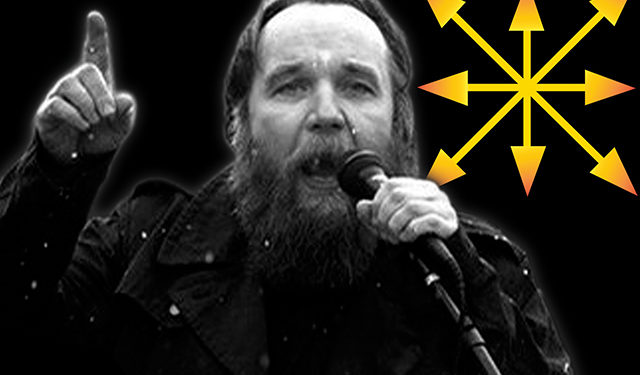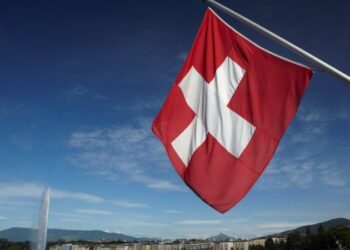Eurasianism is a political movement whose followers believe that Russia belongs to neither European nor Asian civilization, and it is an expression of the geopolitical concept of Eurasia. Russia is actively using Eurasian ideas in the foreign policy arena, especially in its relations with neighboring countries, as it calls itself, the “Near Abroad.”
We have heard a lot about Eurasianism. Almost everyone will have heard of the Eurasian Economic Union, the Collective Security Treaty Organization, the Shanghai Cooperation Organization, Alexander Dugin and others.
And yet, there are many misconceptions, for example, that Eurasianism is a doctrine borne of Putin’s Russia; that Eurasianism, as the original idea, belongs to Alexander Dugin; that Dugin, as the author of the teachings of Eurasianism, is the main ideologist of the Kremlin, and so on.
To that end, it will be interesting to look at the history of the origins of this political movement, to understand its real content and impact on the present.
The Origins of Eurasianism
Eurasianism, as a political movement, flourished in the 1920s, with the Tsarist emigration fleeing Russia (then Soviet Union) as a result of the Bolshevik Revolution and the Russian Civil War. Among the leaders of the movement were: the famous linguist and historian Prince Nikolai Trubetskoi, philosopher Piotr Savitsky, musician Piotr Suvchinsky, translator and literary scholar Dmitry Sviatopolsk-Mirsky, and lawyer Konstantin Tsugayev.
Eurasianists saw the October Revolution as a logical response to Russian society’s attempt at rapid modernization. The opinion was that Russia was not part of European culture, therefore, its Westernization met with natural resistance, which led the country to the end of the Tsarist regime.
Unlike the rest of the White Emigration, the Eurasianists considered the Soviet regime a necessary stage of development and believed that it could transform it into a national, non-European Orthodox state.
Despite their loyalty to the Soviet regime, the Bolsheviks did not intend to tolerate the Eurasianists for long, and did everything they could to discredit them. Thanks to Soviet security efforts, the leaders of the Eurasian movement were successfully discredited; by the beginning of the years, the Eurasian movement had ceased to exist.
Neo-Eurasianism
Eurasianism returned to Russia in the late 1980s. After the collapse of the Soviet Union became inevitable, academic circles began to muse about Russia’s new mission. It was at this time that Neo-Eurasianism was conceived.
According to popular belief, the author of the doctrine of Neo-Eurasianism is the famous Soviet historian, ethnologist and anthropologist Lev Gumilyov. Gumilyov often said he was “the last Eurasianist.” His Neo-Eurasianist vision was based on his rather controversial scientific theory, according to which the Russian ethnos retained its original appearance during the Mongol occupation (1240-1480) and protected itself from the aggressive influence of the West. Gumilyov argued that Russia was more of an Asian civilization than a European one. His view of Western culture and civilization was much more antagonistic than that of Trubetsky and his contemporaries.
Lev Gumilyov’s theories have had some influence on other Eurasianist authors, the most famous of whom is Alexander Dugin.
Alexander Dugin
There are many misconceptions about Alexander Dugin in our society. Georgian media often refers to him as “the main ideologist of the Kremlin.” The idea is that it is his ideas that determine the Kremlin’s domestic and foreign policy, which is far removed from the truth. In fact, Dugin’s influence has always been very limited, both in political and academic circles.
It should be noted that Dugin deservedly enjoys the dubious fame of embroidering Neo-Eurasianism with the most aggressive rhetoric in its history. The Duginian version of Neo-Eurasianism has been hailed by scholars as “a form of fascist ideology in which Russia must create a totalitarian, Moscow-dominated Eurasian empire that will lead to war and ultimately defeat its eternal enemy, the United States and its allies, which will usher in the Golden Age of Global Cultural and Political Anti-Liberalism.” Other scholars believe that Dugin’s Neo-Eurasianism has nothing to do with Eurasianism at all.
Alexander Dugin is a philosopher who is constantly looking for a place under the sun. In the 1980s, he was a dissident and anti-communist. In 1988, he joined the Neo-Nazi organization Pamyat (Память). The Pamyat leaders considered the organization to be a “People’s National-Patriotic Orthodox Christian Movement.” This organization played an important role in spreading Neo-Nazi ideas in Russia after the collapse of the Soviet Union.
Afterwards, Dugin emerged as one of the authors of the political program of the newly formed Communist Party of the Russian Federation (whose undisputed leader is Gennady Zyuganov).
In 1993, he founded the National-Bolshevik Party, which he led until 1998. The emblem of the party was the flag of the Third Reich, except that instead of a swastika in its center, a hammer and sickle were depicted. Influenced by the ideas of this party, in 2006, another political force was established in Russia – the National-Bolshevik Front. In 2001, Dugin founded the Pan-Russian Eurasian Movement, and a year later, another party called the Eurasian Party. However, the political parties founded by Dugin have never achieved even a modicum of success.
Although Dugin’s influence has never been particularly significant, there are still moments of glory in his biography. He was an adviser to the speaker of the State Duma, Gennady Seleznyov. He also consulted with Sergei Naryshkin, who at various times was the head of the Russian presidential administration and the speaker of the State Duma, and currently heads the foreign intelligence service. However, at the time Dugin was working as his adviser, Naryshkin was a Duma deputy.
Dugin is the author of over thirty books and dozens of articles, but two of his most popular works are: The Fundamentals of Geopolitics – Russia’s Geopolitical Future, published in 1997, and The Fourth Political Theory, published in 2009.
Dugin came into the spotlight right after the publication of “Fundamentals of Geopolitics”. The book soon became a textbook for the Military Academy of the Russian General Staff. Dugin was assisted in writing the book by Colonel-General Leonid Ivashov. According to Gennady Seleznyov, the then speaker of the Duma, “the Dugin doctrine should have become an integral part of the school curriculum.”
What does The Fundamentals of Geopolitics preach? It shows the way for Russia to become the hegemon of the Eurasian space and regain the “old glory”. The main opponents on this path are the United States and its allies. Russia must destabilize US domestic politics, undermine the foundations of its stability, encourage racist groups, and provoke various social and ethnic conflicts. In this way, American influence will be significantly weakened, which will create favorable conditions for Russia to establish and control the Eurasian space.
The same paper discusses how Russia should treat different neighboring countries. Finland, for example, must join Russia. One part of it is to be united into the Republic of Karelia, and another part the Murmansk Oblast; Estonia will be included in Germany’s “sphere of influence”. Lithuania and Latvia should be given special status in the Eurasian space; Ukraine should not exist as an independent state because, according to Dugin, it is an anomaly and has no cultural or geopolitical identity; Azerbaijan should be divided into several parts, or handed over to Iran; Iran is a key partner for creating the Moscow-Tehran axis and Armenia should be a strategic base for the functioning of this axis; Georgia should be divided into several parts. Abkhazia and South Ossetia should join the Russian Federation. Georgia should not pursue an independent domestic or foreign policy.
‘The Fundamentals of Geopolitics’ is a large bouquet of Dugin’s fascist, chauvinist and Bolshevik views. It may indeed reflect the sentiments and aspirations of a significant portion of Russian society and political elite, yet its practical realization is unimaginable even under Putin’s conditions in Russia. As a result, Dugin himself was disappointed many times.
Most of Georgian society met Dugin during the August 2008 events. During the days of the August War, Dugin “surpassed” himself and uttered one of his most distinctive xenophobic speeches. In this speech, Dugin blamed the Georgian military for killing helpless women, elderly and children with grenades, the genocide of the Ossetian people, a shooting in the back of Russian “peacekeepers”, bombing kindergartens, etc. In this speech, Dugin asked another rhetorical question: “And do you think that Georgians are human after all?!”, to which he answered “I do not think so. People who act like animals do not deserve to be called human beings.” After that, he noted that Georgia attacked Russia and in this situation, there is only one solution – “complete victory”, to achieve which, according to Dugin, it was necessary to “fully occupy Georgia and establish a” democratic order” there. To bring Ossetia and Georgia under the Russian protectorate. “Tanks on Tbilisi! That’s the only formula for our victory!”
Dugin’s hopes were not fulfilled. The full occupation of the territory of Georgia did not take place. The main “culprit” in this, along with Georgia, was the West. It turned out to be a heavy moral blow to Dugin. The declaration of Abkhazia and the former South Ossetia as independent states was not enough for him, as he demanded the annexation of both territories to Russia and named the Abkhazian and Ossetian “pleas” as the basis. In this famous speech, Dugin referred to the people in power in Russia as patriots, but assessed Russia’s “delayed” response as “criminal”. After the war ended, he turned to open criticism of the Kremlin.
After the August 2008 war, Dugin began working at the Faculty of Sociology of Moscow State University. In 2009, he became the Deputy Head of the Department of Sociology and International Relations. In the same year, his book ‘The Fourth Political Theory’ was published. The paper tells us that until now there were three political theories: liberal democracy, Marxism and fascism. At the center of liberal democracy is the individual, in Marxism – the class, and in fascism – the nation. As for the fourth political theory, according to Dugin, Dasein is at its center. Dasein is a German word that can be translated into Georgian as “presence on the ground”. According to some researchers, this paper laid the ideological basis for the 2014 occupation of Crimea and the events in Donbas. Just then, another moment of glory came for Dugin.
During the occupation of Crimea and the events in Donbas, Russia actively considered the project of creating “Malorossia”, which was completely in line with Dugin’s ideas. During this period, he was relatively frequently invited to major Russian television stations; however, after the Malorussia project failed, Dugin again switched to criticism of the Kremlin and Putin.
At the same time, he became embroiled in a serious scandal, this time over hate speech about Ukrainians – “Ukrainians must be killed, killed and killed! More reasoning is not necessary. I’m telling you this as a professor,” he said. Due to similar statements, Dugin also appeared in the list of persons on whom Western countries imposed sanctions.
After the failure of the “Molorossia” project, Dugin lost his academic position, and his complete marginalization began. Soon, Dugin was being listened to only by the leaders of the “People’s Republics” of Donetsk and Lugansk.
Dugin and religion
The issue of Dugin and Orthodox Christianity deserves a special mention. In 1968, he was baptized by his great-grandmother in the Michurinsky Cathedral. In 1999, he joined the Starover wing. This religious movement rejects the reforms carried out in the Russian Church in 1652-66 and is separated from the Moscow Patriarchate. With this gesture, Dugin emphasized that he has not lost touch with the indigenous Slavic roots and beliefs, thus trying to strengthen his own conservative image. Nevertheless, in geopolitical matters, he supports the expansionist policy of the Moscow Patriarchate and advocates the concept of an “Orthodox World” of which Russia is, of course, the leader.
Dugin and Georgia
Dugin’s attitude towards Georgia and Georgians can be seen in the already mentioned ‘Fundamentals of Geopolitics’ and his August 2008 speech, so we will not dwell on this issue. In this section, we will talk about his connections with Georgian entrepreneur-politicians and ultra-right groups, chief among them Levan Vasadze, a businessman and now a politician, who has become his Georgian confidante. In fairness, it should be noted that Vasadze never tried to hide his connection to Dugin.
In addition to personal meetings, he appeared on Tsargrad TV, which was headed by Dugin after its establishment. Tsargrad is financed by the Russian oligarch Konstantin Malofeev. In 2020, due to sanctions against Malofeev, YouTube blocked the channel’s content on its own platform.
According to Vasadze, his relationship with Dugin was motivated by patriotic motives and he even managed to convince the hostile Russian imperialist to make a complete u-turn in Georgia’s favor. Probably, to strengthen this sympathy, Vasadze met with his friend on May 26, 2021, on the Independence Day of Georgia, in Moscow.
It is noteworthy that Vasadze was not a guest on Tsargrad, yet Dugin visited the Georgian TV channel Alt-Info, a sharply chauvinistic, ultra-rightist and active disseminator of Russian narratives. On the show, he talked about various issues related to his attitude towards Georgia. In addition to claiming that he loves Georgia and the Georgian nation very much, Dugin also spoke about what kind of state Georgia should be: “orthodox”, “conservative”, “really independent” state, which will have good relations with Russia and will not have Western or North Atlantic aspirations. There was nothing new in this statement, nor is the attitude that Vasadze claimed has changed evident anywhere. This is exactly what Russia wants from Georgia – not to have an independent policy and to rule a puppet regime that will act according to the directives of its northern neighbor.
Dugin actively responded to the events of July 5-6 in Georgia and shared the posts of members of Georgian chauvinist groups on his Facebook page.
All this clearly shows that Alexander Dugin, who according to a certain part of our society, including the influential media, is the “main ideologue of the Kremlin”, is today a completely marginalized and bankrupt “intellectual” who is no longer listened to in Russia and is forced to periodically voice his opinions in conversations with Alt-Info and Vasadze.
Consequently, the notion that these marginalized groups operating in Georgia have direct links to the Kremlin and that they could potentially “sort out” relations with Russia is far removed from reality. These groups have no resources to talk to Russia, they are only responsible for carrying out the tactical tasks of the lower-middle-ranking representatives of Moscow, for which they receive the appropriate resources. Some of them do so deliberately, some of them are useful idiots who are doing something beneficial for Moscow’s direct interests. About the same as Dugin writes in his ‘Fundamentals of Geopolitics:’ create discord within the country, bring into action various chauvinist and aggressive groups, and dismantle the foundations of the functioning of the state so that it can no longer concentrate on real problems.
Analysis by David Bragvadze, Georgian Institute for Security Policy














